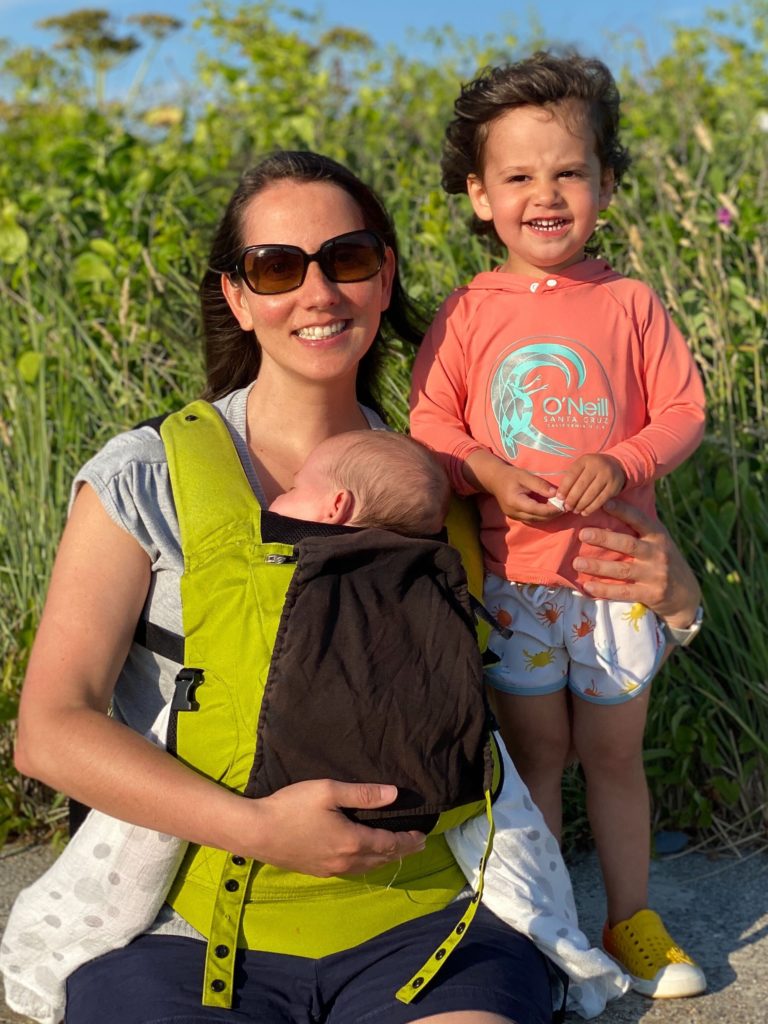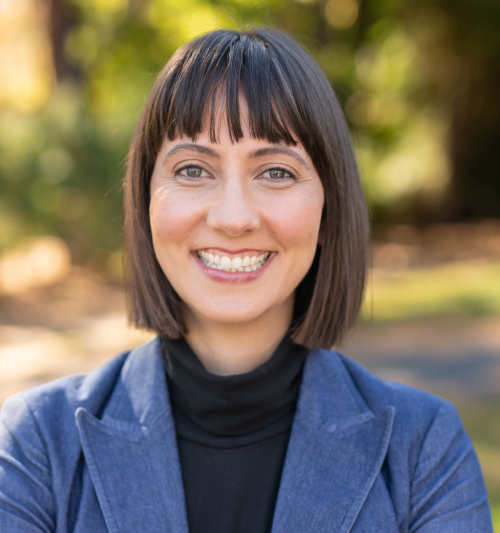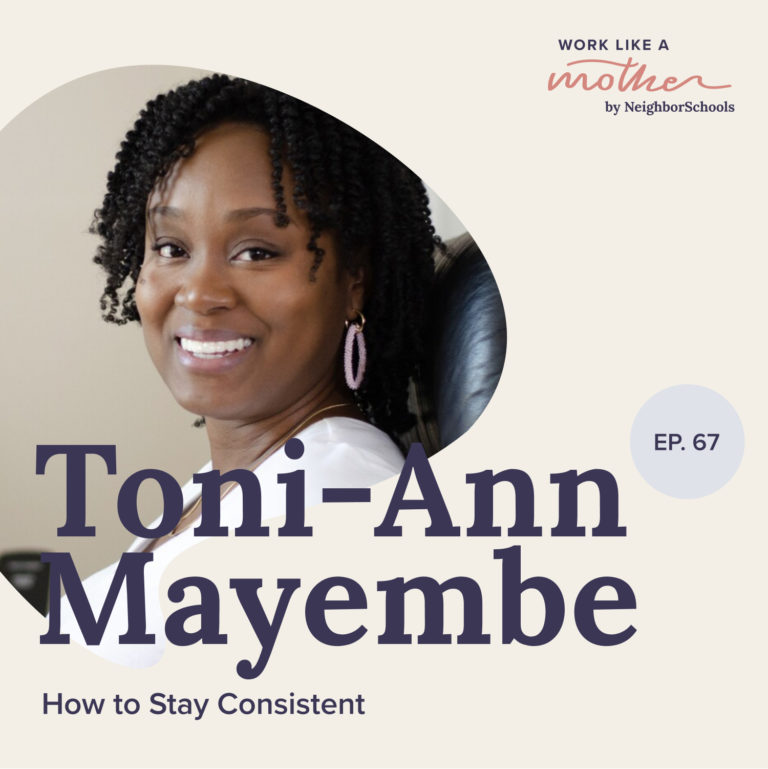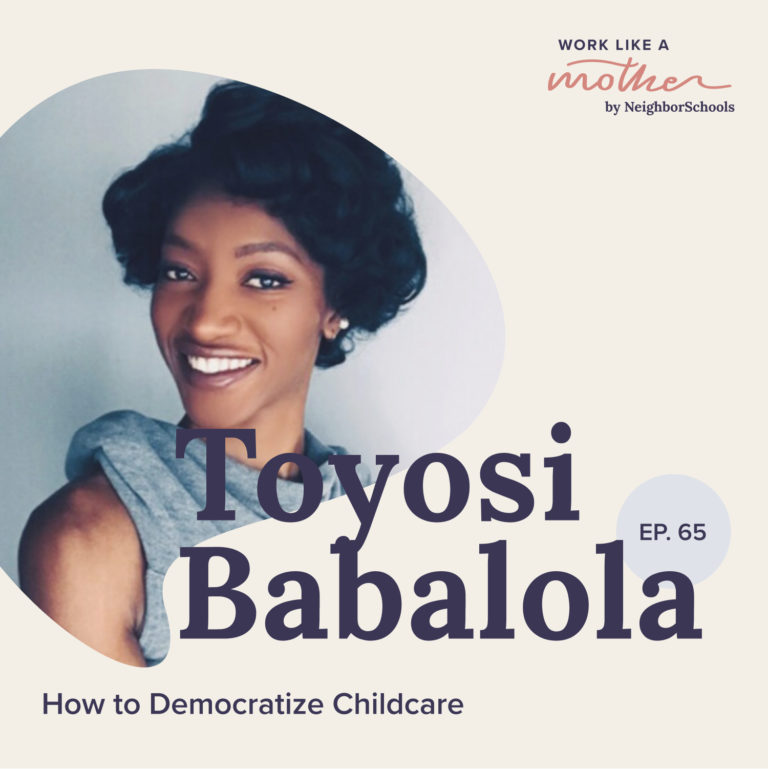As I sat down to prepare for my interview with Ai-jen Poo I was struck (and a bit intimidated) by all she has fought for and accomplished as a fierce advocate for women. Ai-jen has been recognized for all her accomplishments as she was named one of Time 100 in Time Magazine, and was awarded a MacArthur Fellowship genius grant. The breadth and power of her work is remarkable, yet Ai-jen is humble, relatable and wise. She attributes her success to the very same women whose voices she works to amplify. What if our country’s leaders all acted with the same compassion? What if they listened first to the needs of our people, and then figured out policies and systems to support them? We’re trying that approach at NeighborSchools, addressing the child care crisis in our nation. I was inspired to hear how Ai-jen is building a moment of moms on a much larger scale.
Watch + Listen to the whole conversation:
Ai-jen Poo, Executive Director of the National Domestic Workers Alliance has spent her entire career fighting for women’s rights. Inspired by her mother and grandmother who raised her, Ai-jen realizes the power of caresquads and communities in raising children. She advocates for domestic workers who, as she describes it, work a “triple shift” – they have their job (or multiple jobs), they are moms, and they are advocates, fighting for change from these systems and policies that oppress them. At a policy level, Ai-jen is fighting for Universal Family Care, because she believes that everyone deserves affordable child care, paid leave, elder care, and assistance for people with disabilities. Our country needs to turn our attention to leaders like Ai-jen to listen, then act on the needs of our mothers.
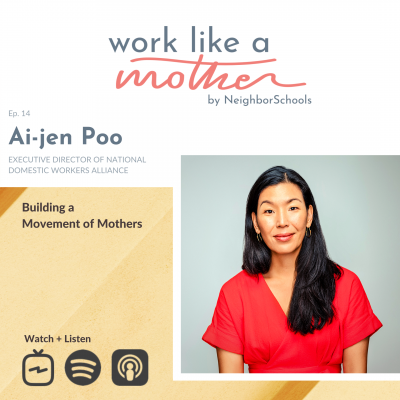
What was that first spark that led you to activism?
I was raised by really strong women- my grandmother and my mom. I think as a child, I just kind of watched as they did everything. They took care of our family. They were powering everything in our household and doing so much in our extended networks. And I think I just assumed that since women are powering everything that they would be in charge of everything and calling the shots in our world. I think as I grew older I came to realize that that’s actually not the case and there was something deeply wrong about that to me. And so I got involved to try to lift up women’s voices and fight for gender equality in my little context and then it kind of grew from there.
How did you become passionate about supporting domestic workers?
I volunteered at a domestic violence shelter on the hotline and so many of the calls that came in from women that actually weren’t about abuse. The women wanted to talk about the everyday struggles they were facing in taking care of their families. So many women are working extraordinarily long hours and are still not able to pay the bills and make ends meet. I just was so struck by that fact. How come women are working so hard and still can’t cover the basics and take care of the people that they love. I think that really struck me and drove me to want to make work better for women. And so that’s kind of what put me on this path of organizing domestic workers and I haven’t looked back. It’s really been my whole entire life.
What do you see as the challenges and the issues that you’re tackling right now with your work?
Well, so many of the issues that women struggle with are deeply interconnected. So on the one hand, I’m working with domestic workers who are working inside of our homes providing caregiving and cleaning services and the wages are low. There’s no access to a safety net. There’s no paid sick days or paid time off. There’s no job security and it’s often really unpredictable when or whether you’ll have work and when you’ll have time for your own family. In the context of a pandemic, some of these women have been working throughout the entire public health crisis as essential workers. And in some cases like home care workers, they are the only lifeline to some of the people who are the most vulnerable to the virus itself, like our elders and loved ones with disabilities. They’re having to pay out-of-pocket for safety measures like PPE, Covid tests, and access to health care and they’re not getting any kind of hazard pay.
And all of the burden of safety in this time is falling on the shoulders of the women with the least amount of power and agency in the situation. And I’m watching the whole country implode with struggling with caregiving. Every zoom call I’m on there’s kids crawling on the parents and everyone’s struggling with online learning and how to manage that and our parents are getting evacuated from nursing homes- it’s just so scary. We’re so ill-equipped for this moment and it’s because it’s been kind of a crisis that’s been building where families just don’t have the support that they need to care for the people that they love. I’m also working on how we have caregiving systems that really work and support us the way that our infrastructure- our roads, our bridges, our tunnels, are enabling things to happen in our world. We should have a strong infrastructure for care to support our families, especially as we’re working and I think we have a really unique moment with this pandemic. Now that we’re all so clear how important care is in our lives and it’s kind of front and center in our minds every single day that we might actually be able to move the solutions that we’ve needed for a very long time.
How are you juggling this for your family?
I just can’t even fathom the reality that in September alone more than 800,000 women, disproportionately women of color, left the formal workforce, largely because of caregiving challenges. If we don’t act quickly that pattern is just going to continue to unfold. Generations of work that we’ve done to try to achieve equity in our Workforce is just going to be washed away. And so it’s totally vital and it’s super important to me personally.
I’m lucky because I have a 9 year old step-daughter and she has four parents. And so we have a good adult to child ratio. We’re really a squad. We’re a team that works together to make sure that she is cared for. We’re also really fortunate because she’s part of a learning pod where a few girls are able to go through this online learning experience together so that she’s not alone and isolated. As a child at this age that’s been really important because there is an emotional and mental toll that it’s taken on her to have to navigate all of this. Its also taken a toll on us as parents to figure out how to parent and how to be present when we’re all struggling to navigate all of this change and uncertainty- It’s just incredibly stressful.
I just think about how caregiving in general is hard enough, right? Being a parent in itself is so complicated. It brings out all of the challenges and experiences that have shaped who you are in good and also not so good ways and you have to kind of manage that in every second of the day and that is hard enough let alone the reality of not having child care, not being able to afford childcare, not being able to spend the kind of time that you need with your kid because your job requires you to work overtime all the time. There’s just so many economic pressures that we have placed on ourselves and these are choices that policymakers have made and we can make a different set of choices. I think that has to be our future because this is not fair and it’s not sustainable.
I love this idea a care squad. Can you tell us a little bit more about that?
Care squads are based on the idea that caregiving in the 21st century is a team effort. They say it takes a village to raise a child and I actually think it takes a village just to care in general. We are a country that needs more care than ever before at a time when we have less of it because most working-age adults have to work outside the home to make ends meet and so we actually have to figure this out. It’s going to require families stepping up workers having good sustainable jobs in the care industry so that they can do this work as a profession and sustain in it and it’s going to require friends, extended family, neighbors and networks. It’s kind of an all-hands-on-deck situation. I think rather than deny it and feel bad about it, we should embrace it. We should celebrate it and we should invest in those relationships that make it possible for loved ones to have care and not think about it from a scarcity standpoint, but rather one of abundance. The squad concept is one that is meant to celebrate the teams that we create for ourselves to make it all work so that we can invest in them.
Bridget Garsh
Co-founder & COO
Bridget is mom to two little boys, Hudson and Brooks, and a champion of working moms everywhere. NeighborSchools itself was borne out of Bridget’s challenge to find high-quality yet affordable child care, and the realization that so many parents struggle with these same issues every day.
Read more from Bridget, follow her on IG, and check out her new series, Work Like a Mother.
